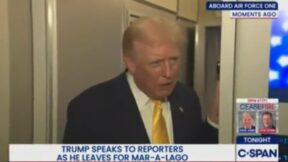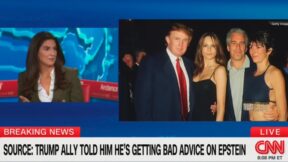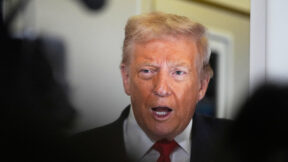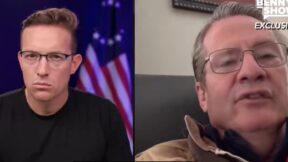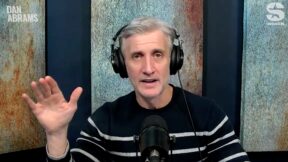Stephen Fry’s Alternative Christmas Speech Spotlights Anti-Semitism, Polarises Viewers
Actor and comedian Stephen Fry called for Jews to stand proud amid a surge of anti-semitism across the country in the Alternative Christmas Message for Channel 4, a counter to the King’s speech on the BBC.
Opening with a reflection on fears he had growing up gay and being surprised by growing acceptance of homosexuality, Fry, who has Jewish heritage on his mother’s side, said that he never imagined a day he’d have to worry about being Jewish in the UK.
“Yes, you heard me correctly,” he said. “I am a Jew.”
The actor continued: “My Jewish grandparents loved Britain, believing that Jews were more welcome here than in most countries. I am glad they aren’t alive now to read newspaper stories that would have reminded them of the 1930’s Europe that they left.”
Despite not being raised in a religious household, Fry has often found himself on lists of British Jews published by far right media. He also pointed to the rise in anti-semitic incidents following Hamas’ October 7th attack on Israel and the Israeli “response.”
Fry called on Jews to “stand upright and proud in who they are” and on non-Jews to “speak up and call out venomous slurs and hateful abuse wherever you encounter them.”
“Knowing and loving this country as I do, I don’t believe that most Britons are ok living in a society that judges hatreds of Jews to be the one acceptable form of racism,” he said.
Fry’s speech quickly went viral, sparking both praise and protest by viewers. Commentary was intensely polarised along the political faultlines of the ongoing Israel-Hamas conflict.
UK charity, Campaign Against Anti-Semitism, praised Fry for a “beautiful” and “brave” message:
Others described the speech as “poignant” and saw the backlash as exactly what required the video in the first place:
https://twitter.com/Mendelpol/status/1739592221219803476
But in backlash some accused the comedian of indifference to the suffering of Palestinians and peddling pro-Israel propaganda, after he referred to the the Israeli military campaign in Gaza only as a “response.”
